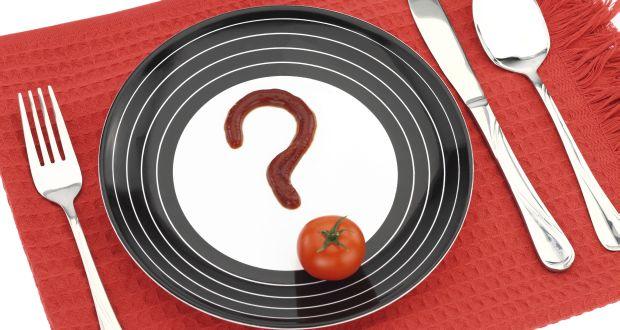How to Lose Weight with Vitamins
Vitamins and minerals play a variety of important roles in your body and are essential to good health.[1] Most of your vitamin and mineral needs should come from food and a well-balanced diet.[2] In addition to helping you meet your daily recommended intake, supplements may even support weight loss, but you should also plan to follow an appropriate well-balanced diet and an exercise routine.
Steps
Part 1 Supplementing with Vitamins
-
1
Talk to your doctor. Before taking any over the counter medication or supplement, you need to talk to your doctor. Not all supplements are safe for all people.
- Unfortunately, the FDA and USDA do not monitor vitamin, mineral and herbal supplements. Any supplement can be sold over the counter to any person. You'll need to use your best judgment and your doctor's advice prior to starting any new supplement.
- When starting a supplement talk to your doctor about which type of supplement may be appropriate for you.[3] Tell him or her what your goal is and ask if there are other options outside of a vitamin.
- When asking about a supplement you've already purchased, make sure to have the brand name, vitamin type and form (found on the ingredient label) and dosage amount. This information will help your doctor decide whether or not the supplement is appropriate for you.
-
2
Read the labels. Since dietary supplements are not well regulated, you'll need to take charge of what you ingest in supplement form. Carefully monitor which type of supplements you decide to take.
- Read the ingredient label of all vitamins. For example, if you're looking for Vitamin D, choose a supplement that visibly says "Vitamin D" on the front. Then flip the bottle over and look at the ingredient list. This will tell you what form of Vitamin D is in the supplement in addition to other ingredients in the pill. Make sure all other ingredients are safe for you.
- Read the serving size and dosage amount. On the back of the bottle, there should also be a nutrition fact panel. It will tell you the serving size (example: 2 tablets) and the dosage per serving (for example, 30 mg). Make sure to be clear about how much is safe to take for you and what the exact serving and dosage amount is. Do not take more than the serving size or dosage daily.[4]
- Read about any possible side effects. Like prescription medications, many over the counter supplements do have side effects. Review any side effects listed on the package and research the supplement online for additional information as needed.[5]
-
3
Take a Vitamin D supplement. Studies have shown that those who supplemented regularly with Vitamin D (and were previously deficient) lost more weight compared to those who didn't take a Vitamin D supplement[6]
- Vitamin D deficiency is one of the most common vitamin deficiencies and is present in about 1 billion people worldwide.[7] Side effects of Vitamin D deficiency are widespread and can include: increased mortality, cancer, metabolic disorders, skeletal diseases, heart disease, and infection.[8]
- The current Vitamin D recommend daily intake is 400 IU.[9] However, more recent studies suggest supplementing with levels as high as 2,000 IU per day.[10]
- Vitamin D is a fat soluble vitamin, which means it's stored in your adipose or fat tissues. It can stay in your body for up to 3-6 months. Be very careful with how much you supplement with. If your levels get too high, it becomes toxic and cannot be removed from your body.[11]
- Food sources of vitamin D are far and few between. However, the following do contain some Vitamin D: cod liver oil, fortified milk and orange juice, salmon, beef liver, eggs and swordfish.[12]
-
4
Add in a calcium supplement. Some studies have shown that calcium works with vitamin D for weight loss. Higher calcium intake has been shown to discourage fat accumulation in your fat cells and may also bind to some dietary fat in your GI tract and prevent your body from absorbing it.[13]
- The recommended intake for calcium is 1,000-1,200 mg daily. However, you'll need to split up your supplements into doses of 500 mg as your body cannot absorb much more than 500 mg calcium at one time.[14]
- Recent research shows that higher levels of calcium supplementation may lead to heart disease and hardening of the arteries.[15] Take care with how much calcium you supplement with in combination of the calcium you eat from your diet.
- The best sources of calcium from foods include: dairy products, dark leafy greens, broccoli and almonds.
-
5
Try magnesium supplements. Magnesium is an important mineral that's involved in over 300 chemical reactions in your body. Studies show that in addition to these functions, magnesium may also help promote weight loss.[16]
- Magnesium plays a role in a variety of metabolic functions but has been shown to improve your fasting glucose and insulin levels which may help you regulate your weight.[17]
- Symptoms of a magnesium deficiency may include irritability, muscle weakness, and an irregular heartbeat.[18]
- The recommended intake for magnesium is 350 mg per day.[19] Take in 1-2 doses throughout the day.
- The best food sources of magnesium include: dairy products, beans, nuts, fish and shellfish.[20]
-
6
Take a probiotic. Although probiotics are not considered a vitamin or mineral, they are a supplement that has been linked with weight loss and maintenance of a healthier weight.[21]
- Probiotics are live, "good" bacteria that are found in a variety of areas throughout your GI system. They are consumed through foods and beverages and are thought to support your immune system, have to prevent or manage constipation and diarrhea.[22]
- Studies have shown that a more diverse set of that "good bacteria" or gut flora is related to lower and healthier weights.[23]
- If you want to take a probiotic supplement find a supplement that contains at least 5 billion CFUs (or colony forming units) per serving.[24]
- You can also add in probiotic foods like cultured yogurt or yogurt drinks, sauerkraut, miso, and tempeh.
-
7
Use choline supplements. A few studies have shown that choline supplements may help you reduce your weight and overall body mass.[25]
- Choline is not considered a vitamin or mineral, but is an essential nutrient that's involved in metabolism, lipid transport, and hormone synthesis.[26]
- The daily recommended intake for choline is about 400-500 mg of choline. However, choline supplements generally only contain about 13% choline and a supplement containing 3,500-4,000 phosphatidylcholine (name of choline on the market) is safe.[27]
- The best food sources of choline include: beef liver, eggs, wheat germ, scallops and salmon.[28]
Part 2 Supporting Weight Loss with Diet & Exercise
-
1
Monitor calories. Although vitamin and mineral supplements may be able to support weight loss, it's generally difficult to lose weight without modifying how many calories you eat each day.[29]
- Most health experts will recommend you cut out about 500 calories daily. This is a slight decrease that results in about a 1-2 pound weight loss each week. This is considered slow, gradual and safe weight loss.[30]
- Try using a food journal or food diary app on your smartphone to help you keep track of how many calories you're eating each day.
-
2
Eat a well-balanced diet. In addition to monitoring your daily calories, it's important to eat a well-balanced diet daily. This will help ensure you're meeting your daily recommended amounts of vital nutrients.[31]
- Most of your required vitamins, minerals and other nutrients should come from foods (supplements should only be used as a backup). Eat foods from each food group most days and include a wide variety of foods from within each food group daily.[32]
- Stick to appropriate portion sizes as well. Following the right portion sizes helps ensure you're eating the right amounts of each food. Stick to: 3-4 oz of lean protein[33], 1 cup of vegetables or 2 cups of leafy greens[34], 1/2 cup of fruit[35] and 1 oz or 1/2 cup of grains[36].
-
3
Snack wisely. Snacks can be a part of a nutritious diet and even be a part of a weight loss plan. Be smart about what you choose and how often you snack.
- Typically its recommended to keeps snacks at around 150 calories per snack when you're trying to lose weight.[37]
- Also try to include a lean protein or a fruit or vegetable in your snacks. These foods provide your body with the nutrition and energy to keep you going throughout the day.
- Snack only when you need to. For example, a pre or post workout snack is a good idea or a having a small snack between two meals that are more than 4 hours apart.[38]
- Examples of nutritious, low-calorie snacks include a hard boiled egg, an individual greek yogurt or an apple with a cheese stick.
-
4
Limit liquid calories. One thing that can sabotage your weight loss is liquid calories. They can slip into your diet without you even feeling full or satisfied.[39]
- Limit beverages that are full of sugar and calories. For example, limit: regular sodas, juices and juice cocktail, energy drinks, sports drinks, smoothies, and alcohol.
- In addition to limiting liquid calories, try to get between 8-13 glasses of clear, hydrating fluids each day. Being adequately hydrated can support your weight loss.[40]
- Instead, fill up on hydrating fluids like water, flavored water and unsweetened decaf coffee and tea.
-
5
Be physically active. In addition to diet and supplementation, being physically active on a regular basis can help you lose weight.[41]
- Health professionals recommend getting in at least 150 minutes of cardiovascular or aerobic activity each week.[42] Try activities like walking, jogging, dancing, swimming or doing aerobics classes.
- In addition to cardio exercises, it's also important to do 1-3 days of strength training each week.[43] This can help build lean muscle mass and increase your body's metabolism and ability to burn calories.[44]
-
Liposuction: A Surgical Way To Weight Loss
A considerable part of the worlds population is overweight which brin
-
Be A Big Loser With These Weight Loss Tips
TIP! You may veer away from your diet from time to time. Don&
-
Kill Your Snacking Habit
If resisting the ever-present, nacho-licious call of the bag of Dorito
-
The Weird Reason You Binge On Junk Food At Night
Weve all been there: Youre halfway through a sleeve of Chips Ahoy befo
-
Healthy weight loss
Weight loss: An introduction to a healthier life style Losing w
-
Weight Loss Advice For A Healthier Lifestyle
Many people fail to ask for weight loss advice because they f
- DON'T MISS
- How to Get Rid of Hemorrhoids Fast
- Acai Berry: The Best Way To Reduce Your Weight
- Lose Weight With These Simple Tips And Trick
- Improve The Intensity Of Your Workout Regime
- Fruity Diet
- Weight Loss Tip #88- Drink water before meals
- How to Gain Weight Quickly
- Is Your Suburb Making You Fat?
- What Are Dr Oz Advises For Weight Loss
- Find Weight Loss Tips That Really Work




